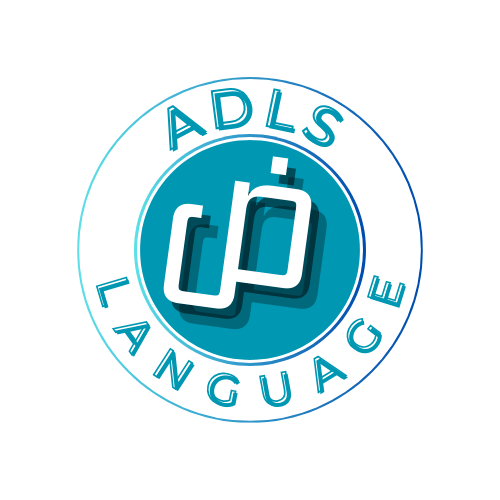10 Arabic Assessment Facts Learners Need to Know.
- Skills Tested – Arabic assessments usually cover the four skills: reading, writing, listening, and speaking.
- Script Mastery – Because Arabic has a non-Latin script, assessments include recognition of letters, joined forms, and diacritics.
- Vocabulary and Grammar – Like other languages, tests measure vocabulary range and grammatical accuracy.
- Diglossia Factor – Modern Standard Arabic (MSA) differs from dialects, so GCSE and academic tests focus on MSA, not spoken dialects.
- Writing Direction – Learners are tested on correct right-to-left writing and spelling accuracy.
- Cultural Context – Questions may involve Arab culture, geography, or everyday situations.
- Speaking Assessments – Pronunciation and fluency are judged, but accent is less important than clarity and accuracy.
- Comparability – Arabic assessments follow similar patterns to French, Spanish, or German exams, with reading comprehensions, role plays, and written tasks.
- Progression – Assessments can be formative (ongoing) or summative (final), allowing learners to track progress over time.
- Standardisation – GCSE and international exams use fixed mark schemes, ensuring fairness and comparability with other subjects.
Take an Arabic assessment for general Arabic or GCSE Arabic.

Similarities to Other Language Assessments
Arabic assessments mirror those in other modern languages. For instance, a GCSE Arabic writing paper is structured much like a GCSE Spanish or French paper: short sentences, translation, and extended writing tasks. Speaking exams also use role-plays, picture discussions, and conversations, just like other languages. The key difference is the Arabic script, which adds an extra challenge for beginners. Beginners courses are available for those who wish to embark on a course of Arabic study.
Types of Language Assessments
- Formative Assessments – Ongoing classroom tasks (quizzes, oral practice) to guide learning.
- Summative Assessments – End-of-course or high-stakes exams, such as GCSE.
- Diagnostic Assessments – Used at the beginning to identify strengths and weaknesses.
- Self-Assessment and Peer Assessment – Learners reflect on their own or each other’s progress.
- Portfolio Assessment – Collecting samples of work (writing, recordings) over time.
These methods ensure that language ability is tracked continuously, not only through final exams.
Which Type of Assessment is a Past Paper?
A past paper is usually an achievement assessment tool.
Here’s why:
- Achievement test = measures how well a learner has mastered what was taught in a specific syllabus or course (e.g., GCSE Arabic 2023 paper).
- Past papers are designed by exam boards (Edexcel, Cambridge, etc.) to reflect the content, format, and skills required by that syllabus.
- When students practise with them, they are essentially checking their achievement against the official exam standard.
However, the purpose of using a past paper can shift:
- In class or revision → it becomes formative assessment (feedback to guide learning).
- In a mock exam → it acts as a summative/achievement assessment (snapshot of ability at that point).
So, past papers are primarily achievement tests, but when used in preparation, they double as formative practice tools.
Key Testing Terms
- Assessment – A general measure of ability, can be formal or informal.
- Benchmark Test – A standardised test used to compare learners against a reference level (e.g., CEFR A2, B1).
- Proficiency Test – Measures overall ability regardless of course content (e.g., ALPT – Arabic Language Proficiency Test).
- Achievement Test – Tied to a specific course or syllabus, measuring what has been taught (e.g., end-of-unit exam, GCSE).
Do You Need an Assessment for GCSE Arabic?
Yes. GCSE Arabic is itself a formal achievement assessment. To receive a grade, learners must sit listening, reading, writing, and speaking exams under exam board regulations (usually Edexcel). No external proficiency certificate is required before entry, but mock assessments and school benchmark tests are often used to check readiness. Some schools may require evidence of previous Arabic study and/or preicted grade.
Take an Arabic assessment for general Arabic or GCSE Arabic.
In Summary
10 Arabic Assessment Facts – Arabic language assessments test the same four skills as other languages, while also accounting for script, diglossia, and cultural knowledge. Learners encounter different types of assessments—diagnostic, benchmark, proficiency, and achievement—each serving a unique purpose. For GCSE Arabic, formal assessment is required to gain a grade, and preparation mirrors the structure of other modern foreign language exams. Understanding these elements ensures learners approach their studies with confidence and clear expectations.

ADLS Language provides a range of online Arabic courses, including:
- GCSE Arabic: Courses tailored for both Foundation and Higher Tier students.
- Quranic Arabic: Focused on recitation, memorization, and Tajweed.
- Self-Study Modules: For learners preferring independent study. ADLS Language
Courses are designed to be flexible, catering to various learning preferences and schedules.
This platform offers:
- Structured Lessons: Organized to cover all aspects of the Arabic language.
- Assessments: To gauge and track progress.
- Self-Study Options: For learners who prefer to study at their own pace.
Ideal for students aiming for a recognized qualification in Arabic. learn.adls.co.uk
Access a variety of materials, including:
- Past Papers: For practice and familiarization with exam formats.
- Study Guides: To aid in understanding key topics and themes.
- Revision Tools: To reinforce learning and prepare for assessments.
These resources are invaluable for comprehensive exam preparation. Follow on Twitter.
